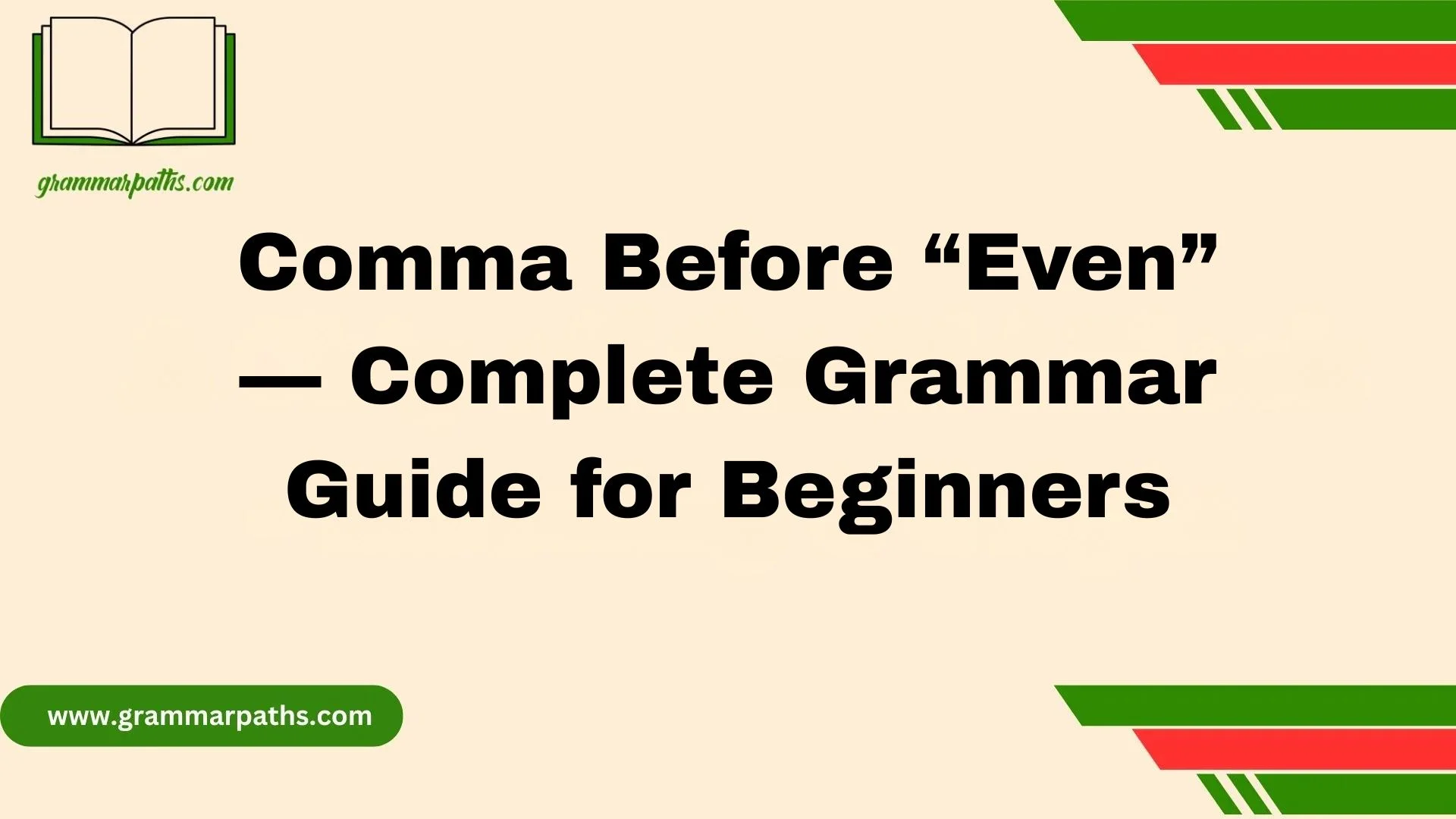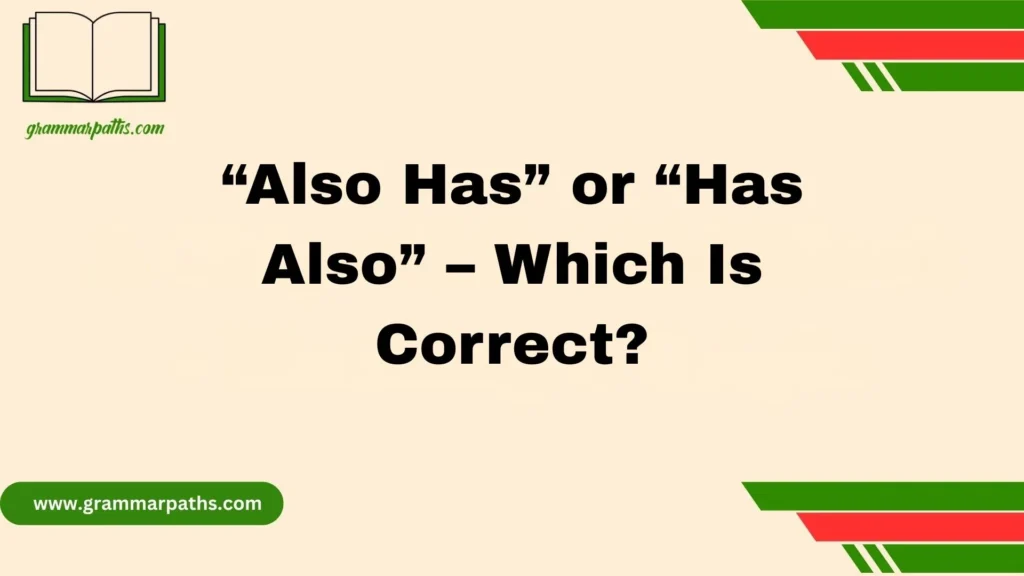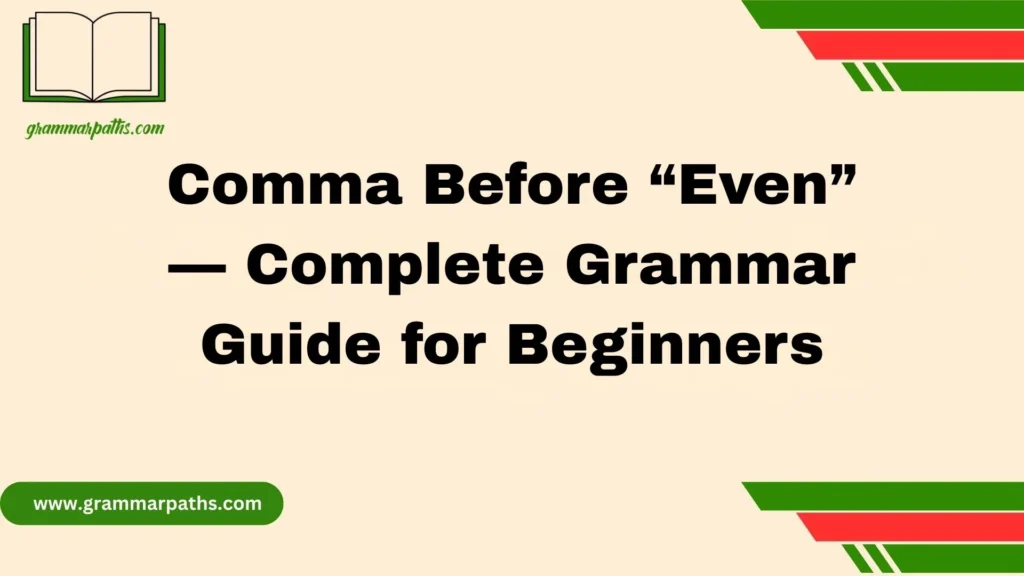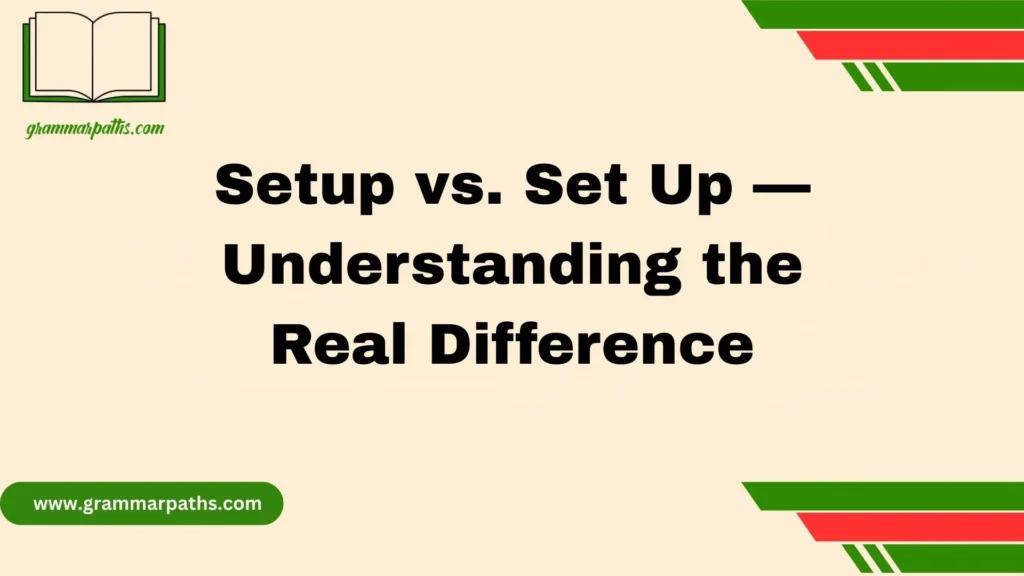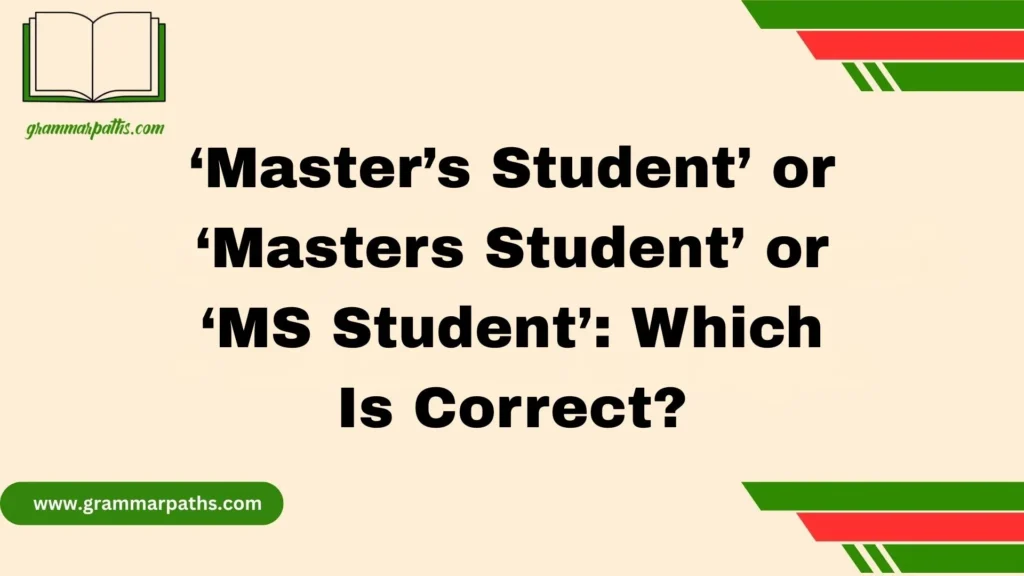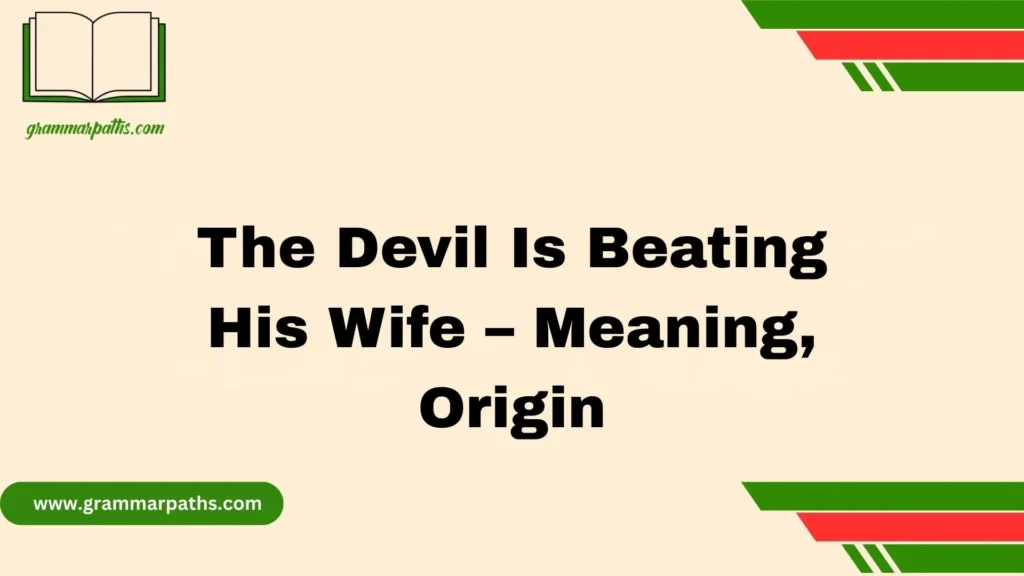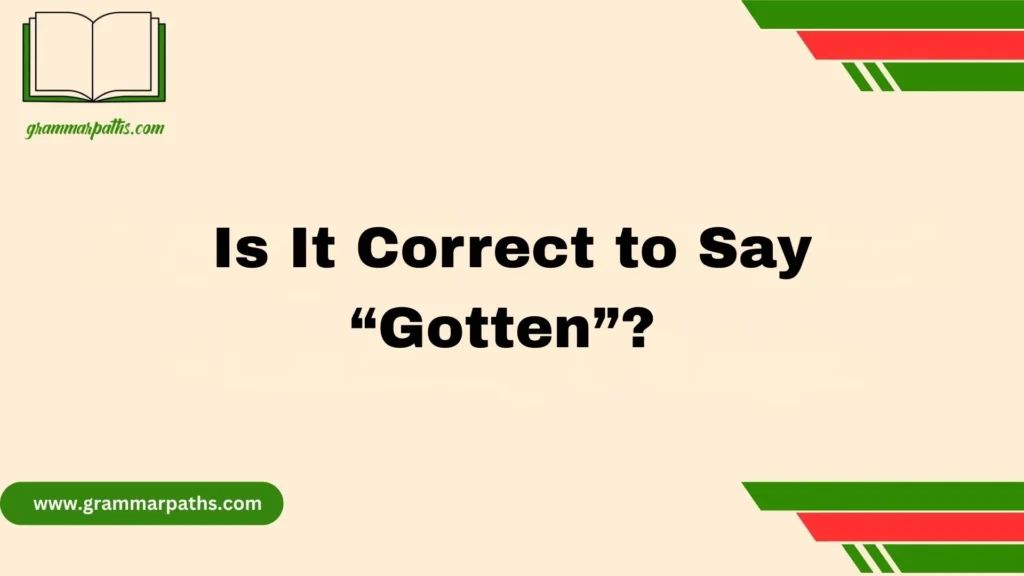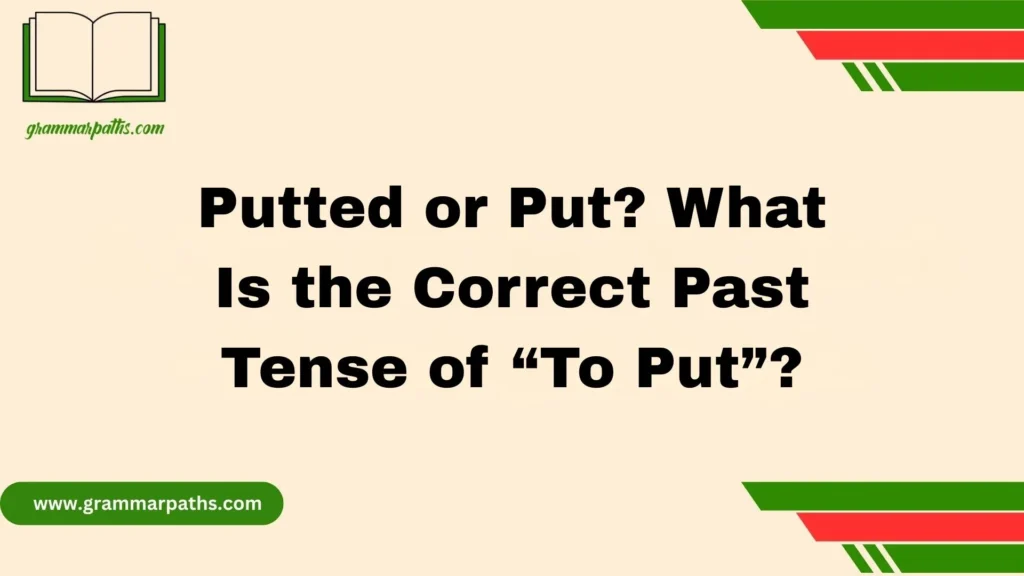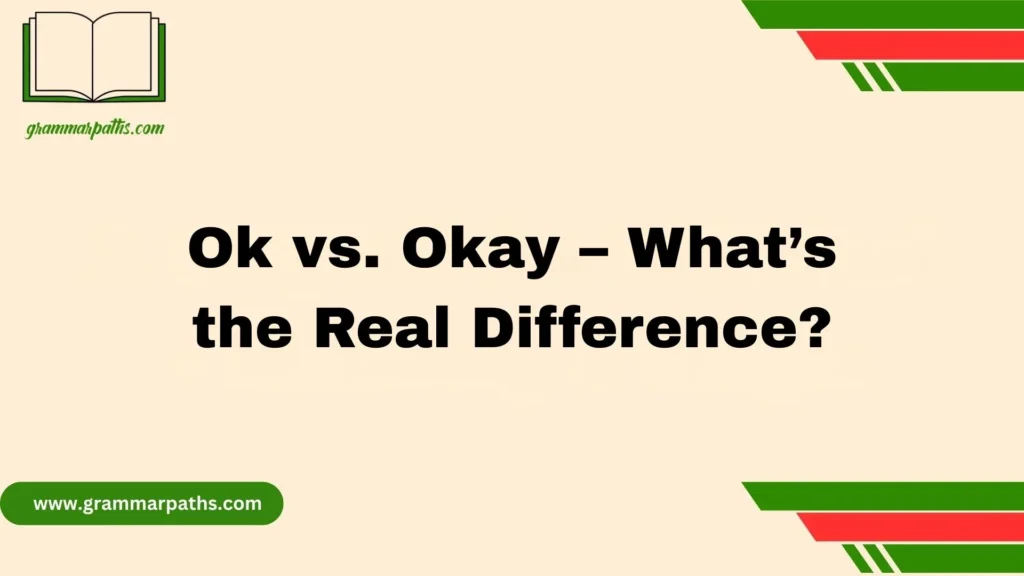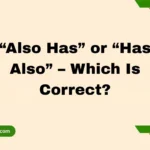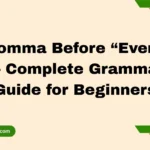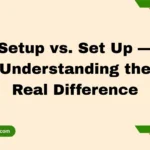When I first started learning about punctuation, I noticed how contradicting ideas often made things confusing. The rules for commas are no exception, especially when it comes to the word even. It helps to remember that commas usually don’t apply before “even,” unless you’re using it as a parenthetical element or in a list with adjectives. In those cases, it’s likely you’ll include a comma because it separates extra details or makes your writing clearer. As a writer, I’ve found it useful to understand which situation I’m dealing with and help yourself by reading the sentence out loud — if it sounds natural without a pause, the comma is less needed.
Over time, I’ve realized that the adverb and adjective forms of “even” can change how the rules work, so it’s important to notice what part of speech you’re using. However, the key is to focus on meaning rather than overthinking grammar charts. Writing often seems complex because the guidelines are thrown at us from different sources, but once you see how they work in real examples, it all starts making sense. At the end of the day, when you know the article, that knowledge stays with you, and it’s easier to place commas where they fit best in all the right places.
Understanding the Word “Even” — The Core Meaning
The word “even” is a chameleon in English grammar. It changes its meaning based on its role in the sentence. It can act as an adjective, adverb, verb, or conjunction. Knowing which one it is helps determine whether a comma belongs before it.
Here’s a quick look at the main grammatical roles of “even”:
| Function | Example | Comma Needed? | Explanation |
| Adjective | “The floor is even.” | ❌ | Describes a noun directly; no pause needed. |
| Adverb | “Even she understood.” | ❌ | Adds emphasis or surprise; flows naturally. |
| Conjunction (in phrases) | “Even though it rained…” | ❌ | Fixed expression; never separated by a comma. |
| Verb | “He evened the score.” | ❌ | Verb use depends on sentence structure, not the word itself. |
In short, commas depend more on sentence structure and clause boundaries than on “even” itself.
When “Even” Is an Adjective — No Comma Needed
When “even” acts as an adjective, it means “flat,” “level,” or “equal.” It modifies a noun directly. Because adjectives and their nouns form a tight grammatical bond, a comma before “even” doesn’t belong.
Examples:
- The road was even and easy to walk on.
- She placed the books in an even row.
- The competition was even by halftime.
Placing a comma before “even” in any of these cases would interrupt the natural flow. The adjective directly describes the noun and does not start a new clause or phrase.
Quick Tip:
If “even” describes something (a surface, competition, or tone), it’s almost certainly an adjective—no comma required.
“Even” as an Adverb — The Most Common Source of Confusion
Most confusion about comma placement arises when “even” works as an adverb. In this form, it adds emphasis, surprise, or inclusivity to what follows. It can modify verbs, adjectives, or entire phrases.
Examples (No Comma Needed):
- Even she managed to solve the problem.
- He arrived even earlier than expected.
- They didn’t invite even their closest friends.
Here, “even” smoothly modifies the following word or phrase. There’s no natural pause, so a comma would break the sentence unnecessarily.
However, sometimes writers add a comma before “even” for stylistic emphasis or rhythm, especially in long or dramatic sentences:
- He refused to listen, even when the truth was clear.
- I couldn’t sleep, even after trying everything.
These commas don’t follow a strict grammatical rule—they’re based on rhythm or emotional weight.
Pro Tip:
If you remove “even” and the sentence structure stays the same, don’t add a comma.
Expressing Emphasis or Surprise with “Even”
“Even” often highlights something unexpected or dramatic. It signals surprise, disbelief, or intensity. When used this way, commas can sometimes appear, depending on the pause the writer intends.
Examples Without Commas:
- Even the teacher was confused.
- Even he couldn’t explain it.
Examples With Commas (for Emphasis):
- She didn’t respond, even after multiple calls.
- I kept waiting, even when I knew he wouldn’t show up.
The comma before “even” in these examples marks a natural pause before a dependent clause, not before the word itself.
Quote: “Commas follow meaning, not habit.” — Grammarist Editorial Board
When you use “even” to express emotional emphasis, read your sentence aloud. If your voice naturally pauses, a comma might make sense. If not, skip it.
“Even” with Comparative Constructions
You’ve seen phrases like “even better,” “even more,” or “even less.” These expressions intensify comparison but rarely need commas.
Correct Examples:
- The sequel was even better than the original.
- He works even harder than before.
- She’s even more confident now.
A comma before “even” in these cases would sound awkward:
The sequel was great, even better than the original.
However, there’s one exception: when “even” starts a contrastive dependent clause that follows an independent one.
Example:
- The weather was nice, even better than we hoped.
Here, the comma separates two clauses for clarity and rhythm.
“Even” as a Verb — Rare but Real
While uncommon, “even” can serve as a verb, meaning “to make level” or “to equalize.” In this form, commas depend purely on sentence structure—not the word itself.
Examples:
- The mason evened the wall before painting.
- She evened out the dough with a rolling pin.
- They evened the score in the second half.
You’d only use a comma before “even” (as a verb) if it introduces an independent clause:
The road was bumpy, evened later by the workers.
Otherwise, treat it like any regular verb—no special comma rule applies.
Phrasal Constructions: “Even Though,” “Even If,” “Even When”
This is where most comma mistakes happen. When “even” joins another word to form a conjunction like “even though,” “even if,” or “even when,” never separate them with a comma. They act as one unit introducing a clause.
Correct Examples:
- Even though it rained, the game continued.
- I’ll support you even if you fail.
- She smiled even when she was sad.
Incorrect:
“Even, though it rained…”
“Even, if you fail…”
The comma never belongs inside these expressions.
Comma Placement Tip:
You can use a comma after the full clause introduced by “even though” if it comes first in the sentence.
Example:
- Even though it was late, we kept talking.
Special Sentence Cases
Comma Before “Even” in Lists
When “even” appears before the last item in a list, it doesn’t require a comma before it.
Correct:
- We invited Tom, Jerry, and even Sam.
Incorrect:
We invited Tom, Jerry, and, even Sam.
That extra comma before “even” breaks the series structure. However, if you intentionally pause for emphasis, you may add one for stylistic effect:
- We invited everyone, even Sam.
In this case, the comma sets up surprise or emphasis, not a list structure.
Comma Before “Even” in Parenthetical or Interruptive Clauses
Sometimes “even” appears inside interruptions or side thoughts, where commas serve to set off the phrase rather than modify “even.”
Example:
- She said, even after thinking about it, that she wouldn’t go.
- The plan, even with all its flaws, was approved.
Here, the commas frame the interruption, not “even.”
Advanced Notes on Emphasis and Rhythm
Expert writers often manipulate commas around “even” for style and pacing. In formal writing, you follow rules strictly. But in creative writing—dialogues, fiction, opinion pieces—commas often mimic spoken rhythm.
Examples from literature:
- “He couldn’t look away, even when she was gone.”
- “They kept walking, even after hope had left them.”
In both examples, the comma slows down the sentence, creating emotional gravity.
Style Tip:
If your sentence’s tone depends on a pause, you can use a comma. Just don’t sacrifice grammar for rhythm.
Quick Recap Table: When to Use a Comma Before “Even”
| Situation | Example | Comma Rule | Reason |
| Adjective use | “An even number.” | ❌ | Direct modifier, no pause. |
| Adverb use | “He even joined us.” | ❌ | Flows naturally. |
| Contrastive dependent clause | “He didn’t call, even after reminders.” | ✅ | Comma before dependent clause. |
| Fixed phrases (“even though,” etc.) | “Even though it rained, we went.” | ❌ | Acts as one unit. |
| Lists | “Tom, Jerry, and even Sam.” | ❌ | Standard series rule. |
| Parenthetical phrase | “She said, even after thinking, she’d go.” | ✅ | Comma for interruption, not for “even.” |
Common Mistakes Writers Make
Even experienced writers sometimes misuse commas before “even.” Here are the most frequent errors:
- Adding commas where none belong.
- “She, even after practice, played poorly.” (over-punctuated)
- Separating “even” from its pair.
- “Even, though it rained.” (breaks the conjunction)
- Ignoring natural pauses.
- “He didn’t care even after seeing the results.” (reads too rushed—comma improves flow)
- Using commas for visual breaks only.
- Avoid random commas that don’t match your sentence structure.
Step-by-Step Checklist for Writers
Follow this quick guide to check if you need a comma before “even”:
- Identify how “even” functions.
- Adjective, adverb, verb, or part of a conjunction.
- Test if removing “even” changes sentence grammar.
- If not, no comma needed.
- Check for dependent clauses.
- If “even” introduces one (like “even after…”), a comma may appear before it.
- Read it aloud.
- Natural pause = comma; smooth flow = no comma.
Real-World Examples and Practice Sentences
Here’s a short exercise to solidify your understanding.
| Sentence | Comma Before “Even”? | Corrected Sentence |
| I trusted him, even when I shouldn’t have. | ✅ | Correct as written. |
| She even cooked dinner. | ❌ | No pause or new clause. |
| We saw, even from a distance, that the car was red. | ✅ | Commas frame the interruption. |
| They bought apples, oranges, and, even bananas. | ❌ | Remove unnecessary comma. |
| Even though it was raining, they played soccer. | ❌ | Conjunction phrase, no comma before. |
Conclusion
Using a comma before “even” doesn’t have to be confusing once you understand the pattern behind it. In most cases, you won’t need a comma before “even,” unless it’s part of a parenthetical element or appears in a list of adjectives. The key is to understand the rules and apply them with intention rather than by habit. As I’ve learned from experience, it’s all about clarity and rhythm—when your sentence flows naturally, your punctuation will too. Remember, every word, comma, and element in your writing has a purpose, and the best way to master this is through consistent practice and mindful use.
FAQs
1. Do I always need a comma before “even”?
No, you don’t. You usually need a comma only when “even” appears in a parenthetical element or as part of a list.
2. What part of speech is “even”?
“Even” can be an adverb or an adjective, depending on the context.
3. Can “even” start a sentence?
Yes, it can. Just make sure the sentence still makes sense and maintains its flow.
4. Why do people get confused about commas before “even”?
Because punctuation rules can sometimes seem contradicting, especially when they’re thrown at us from different grammar sources.
5. How can I remember when to use the comma?
Try reading your sentence aloud. If you naturally pause before “even,” a comma might fit. If not, skip it. Over time, you’ll develop an instinct for it.

Grace Marie is the dedicated writer behind GrammarPaths.com, where she shares her passion for English grammar, idioms, and writing mastery. With a strong background in language studies and years of experience helping learners improve their communication skills, Grace creates clear, practical, and engaging content that makes English easy to understand.
